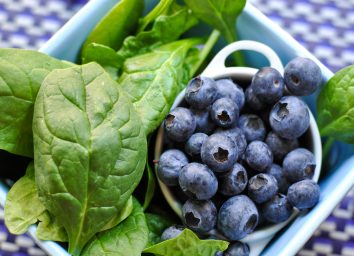Kick Up Your Immunity Fast With These 5 Natural Boosters, Says Science
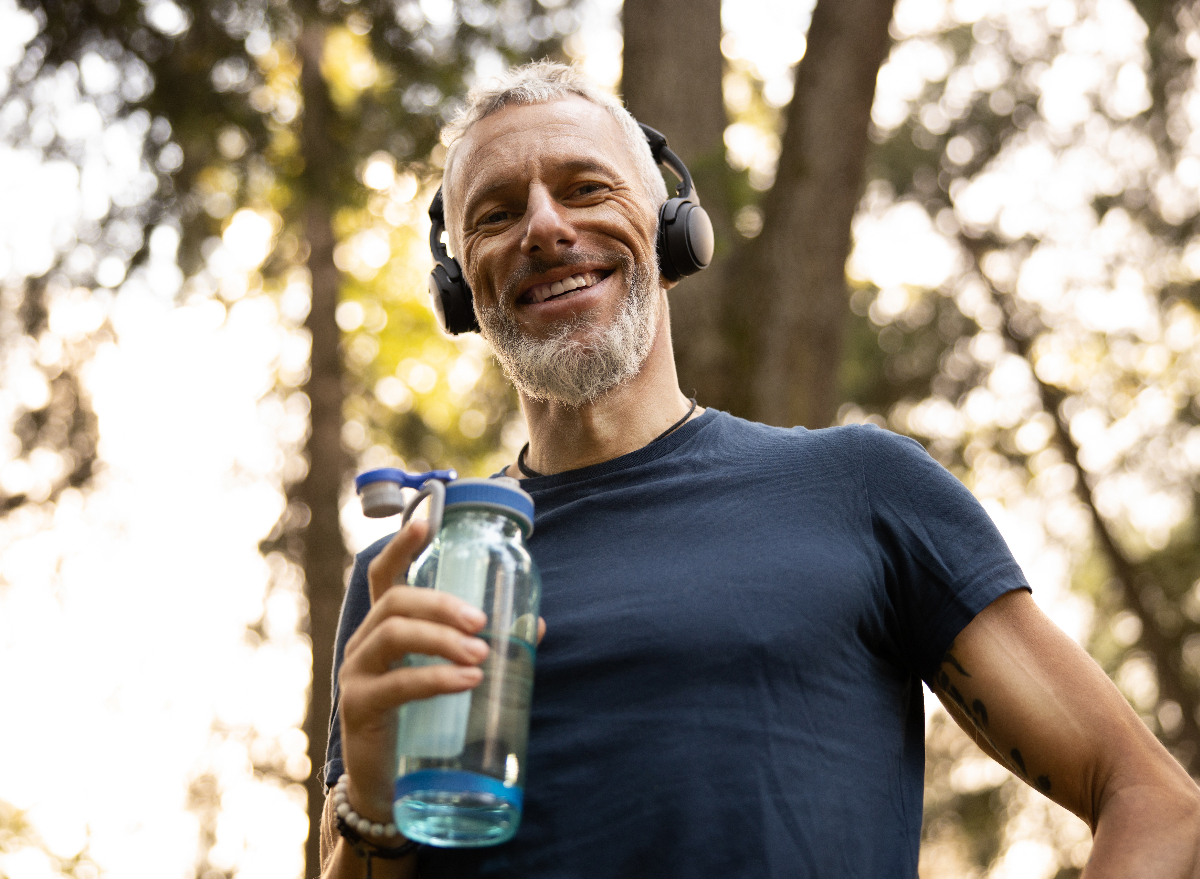
You’re only as old as you feel, right? Actually, according to recent research published in the scientific journal Nature Aging, you’re really as old as your immune system. Study authors conclude the “inflammatory aging clock” ticking away within each one of us can be a more accurate representation of true biological well-being and age than candles on a birthday cake.
The state of your immune system as the decades pass by and you grow older will play a major role in determining just how much chronic inflammation is present in your body. A healthy, well-functioning immune system (at any age) is usually well-equipped to keep unneeded and harmful excess inflammation at bay. A compromised immune system, however, isn’t equipped to take care of inflammatory business like it once was, which can result in chronic inflammation. (Chronic inflammation is linked to virtually every serious ailment associated with growing old. From heart disease and dementia, to cancer, diabetes, and arthritis, chronic inflammation is almost always involved.)
“Every year, the calendar tells us we’re a year older,” says senior study author David Furman, PhD, in a university release. “But not all humans age biologically at the same rate.”
In the short term, a stronger immune system will provide better protection against pathogens and viruses like COVID-19. In the long run, cultivating a robust immune system will go a long way toward manifesting a happy, healthy, and active life for years to come.
The deterioration of the immune system is unavoidable to a certain extent as we grow older, but there are a number of easy lifestyle choices you can make to build up and maintain your immune system—both in the immediate and distant future. Keep reading to learn more about some of the easiest ways to boost your immunity, according to science. And next, check out The 6 Best Exercises for Strong and Toned Arms in 2022, Trainer Says.
Stay optimistic

This immunity tip is super simple: Just keep smiling! It may sound too good to be true, but there’s legitimate scientific research that tells us a little bit of optimism can go a long way toward a stronger immune system.
Published in Psychological Science, a previous study reports people who are more optimistic about the future tend to produce stronger immune responses to pathogens, infections, etc. To gather these findings, the research team injected a group of 124 college student participants with a “material that should summon an immune response.” Two days after, those who were feeling more positive about their academic future produced stronger immune responses.
Remaining positive can be easier on certain days than others, as we all tend to have our grumpy days. According to Dr. Tasha Holland-Kornegay, PhD, LCMHC, taking a few moments each day to practice some self-love can help all of us maintain (or regain) a more positive outlook.
“A hug a day keeps the doctor away! Giving yourself a hug for ten seconds each day can actually release biochemicals that reduce stress levels, increase energy levels, ease depression, strengthen your immune system, and lower your risk of heart disease. Simply wrap your arms around yourself while engaging your abdominal and back muscles at the same time, for just ten seconds. Give yourself a big-ole bear hug and watch what happens,” she explains.
Related: The #1 Best Exercise for Your Immune System, Says Science
Make sure you’re getting enough sleep
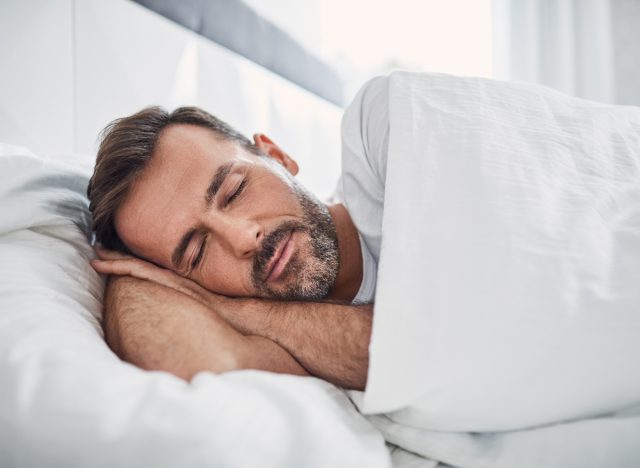
Sleep can often feel like a rare luxury in today’s fast-paced always-on world, but make no mistake, proper shuteye is an absolute non-negotiable when it comes to staying healthy—and the health of your immune system is no different.
There’s a plethora of research that tells us sleep is essential to proper immune function. Consider this study, published in Behavioral Sleep Medicine. A group of young adults struggling with insomnia were deemed more likely to contract influenza than their similarly aged peers sleeping soundly each night. Another research project, this one released in the scientific journal Sleep, even concludes that habitual sleep deprivation can “suppress” the immune system.
“What we show is that the immune system functions best when it gets enough sleep. Seven or more hours of sleep is recommended for optimal health,” explains Dr. Nathaniel Watson, the lead author of the previously mentioned Sleep study and co-director of the UW Medicine Sleep Center at Harborview Medical Center.
If you’re a night owl, don’t worry! Additional research published in the Journal of Clinical Endocrinology & Metabolism finds that a quick half-hour nap can go a long way toward revitalizing the immune system.
“Our data suggests a 30-minute nap can reverse the hormonal impact of a night of poor sleep,” comments study author Brice Faraut, PhD, of the Université Paris Descartes-Sorbonne Paris Cité in Paris, France, in a press release. “This is the first study that found napping could restore biomarkers of neuroendocrine and immune health to normal levels.”
Related: The Best Clothes To Wear For A Better Night’s Sleep, Expert Says
Try taking mini cold showers
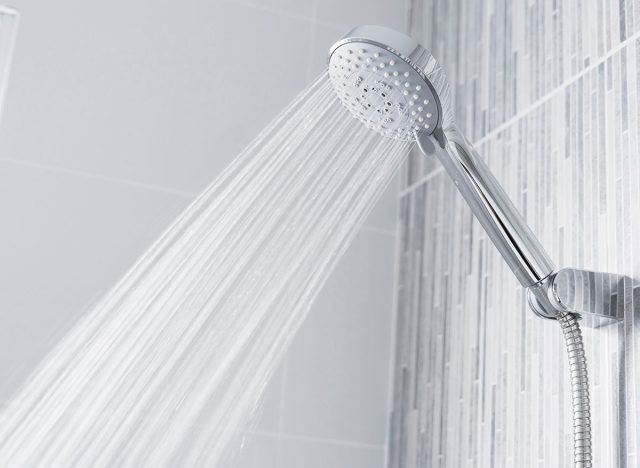
A daily cold shower may take some getting used to, but research suggests subjecting our bodies to some frigid H20 tends to jumpstart the immune system. Even better, you can start off with a warm shower, and gradually turn the temperature down as you finish up your daily cleanse. Research suggests you only have to spend as little as 30 seconds of your shower enduring cooler temperatures to potentially reap major immunity rewards.
One study published in PLoS ONE analyzed over 3,000 people. Half took a normal, hot shower before cooling the temperature down considerably for either 30, 60, or 90 seconds of additional shower time. In comparison to a control group who just took totally warm showers, the cold shower group (regardless of the number of seconds spent under cold water) took 29% fewer days off from work or school due to sickness.
It’s important to mention that instances of reported sickness, in general, didn’t actually fluctuate between the cold shower and control groups. So, while both groups still became sick at generally the same rates, those who took cold showers appeared to experience less severe symptoms—which is conceivably why they avoided calling out of work or school. Developing less severe symptoms during a bout of illness or infection can be a sign of a strong, well-functioning immune system.
Interestingly, a full two-thirds of the cold shower cohort actually chose to keep up the habit after the experiment ended, suggesting a few seconds of cold water from the faucet isn’t all that bad once one becomes acclimated.
“This is the first high-level evidence showing that cold showers can benefit your health. People who took them for at least 30 seconds for one month called in sick 29% less than our control group—and 54% less if they also engaged in regular physical exercise,” study co-author Dr. Geert A. Buijze told The Harvard Business Review.
Spend time outside
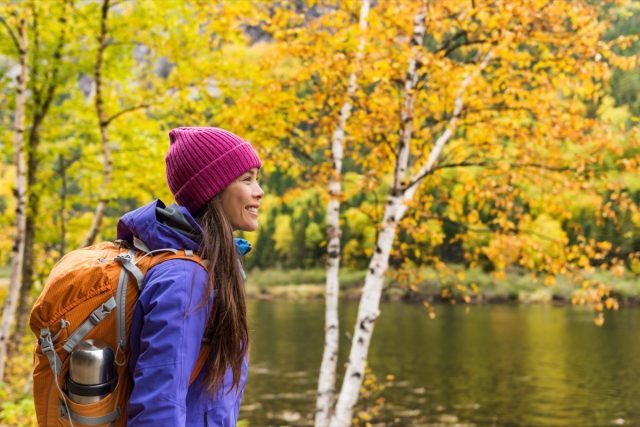
Building up your immune system can be as easy as a walk in the park. Finding some time each day to get outside, spend a few minutes beside nature, and soak in some sun rays is a great way to boost the immune system. To start, the sun provides our bodies with vitamin D. Well, this study published in the Journal of Investigative Medicine concludes that a vitamin D deficiency is associated with a weakened immune system and increased vulnerability to infection.
“One of the most simple and always available ways to boost immunity is to simply get outside daily—regardless of the weather. Receiving natural sunlight (even during cloudy days) can do wonders for immunity and for your mood through the induction of vitamin D—and 15 to 20 minutes of exposure can do the trick,” explains Mar Soraparu, Partner & Chief Wellness Officer at BIÂN Chicago.
Additional research published in Environmental Research reports that people who live near, and spend lots of time within, green spaces are less likely to develop a litany of health issues including heart disease, diabetes, and even premature death.
“We gathered evidence from over 140 studies involving more than 290 million people to see whether nature really does provide a health boost,” notes lead study author Caoimhe Twohig-Bennett, from UEA’s Norwich Medical School, in a press release. “People living near green space likely have more opportunities for physical activity and socializing. Meanwhile, exposure to a diverse variety of bacteria present in natural areas may also have benefits for the immune system and reduce inflammation.”
Related: “Plogging” Will Be Your New Favorite Exercise To Do Outdoors
Go for a walk
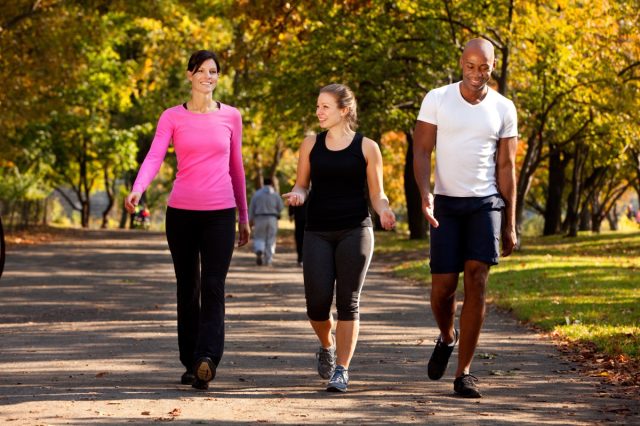
If a walk in your local park isn’t for you, a nice leisurely stroll pretty much anywhere can also help boost your immune system. This study published in the British Journal of Sports Medicine tracked a group of 1,002 people during flu season. Sure enough, those who performed aerobic exercise five times weekly experienced far fewer symptomatic instances of respiratory infections and 43% fewer days feeling sick in general compared to others who weren’t walking nearly as often.
Why does an activity as easy as walking help jumpstart immunity? A casual walk will help fight stress (which can wreak havoc on your immune system) and increase blood flow.
If walking is a bit too boring for you, though, feel free to ramp up the intensity a bit. “Studies also show that regular moderate-intensity exercise improves cellular immunity. Exercises that elicit a moderate cardiorespiratory response are best. These include exercises like running, walking, jumping jacks, squats, and resistance training,” explains Certified Wellness Coach Alexis Martinez, CEO of Healthy Brown Girl.
Related: The “Silly Little Walk” Trend Will Be Your New Favorite Outdoor Exercise

